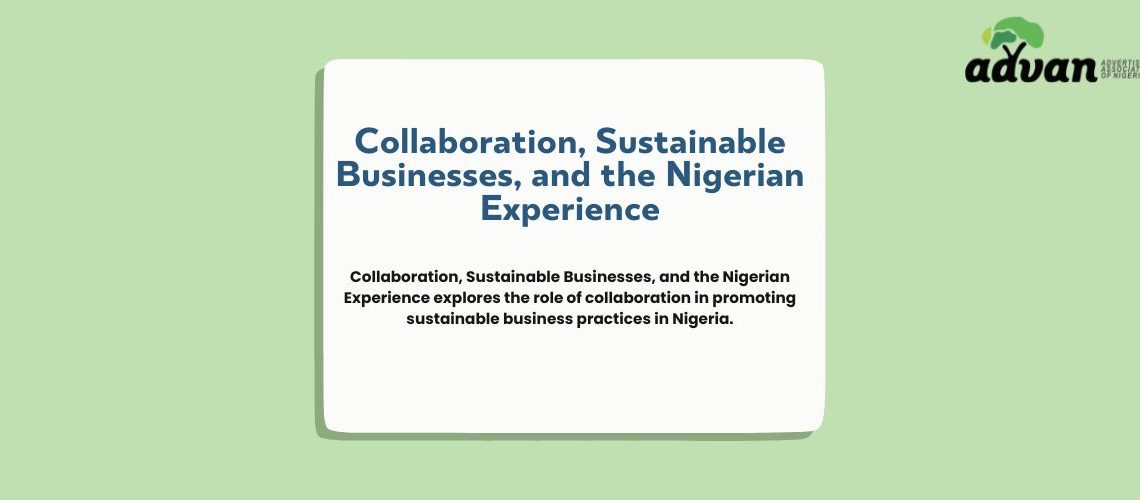Collaboration, Sustainable Businesses, and the Nigerian Experience explores the role of collaboration in promoting sustainable business practices in Nigeria. It examines the challenges and opportunities associated with collaboration in this context, highlighting the following key points:
- Context and Challenges: Nigeria’s unstable economic environment, characterized by inflation, recession, and dependency on oil, has adversely affected businesses. Despite Nigeria’s status as Africa’s largest economy, issues like corruption, poor infrastructure, unemployment, and environmental degradation persist.
- Importance of Collaboration: Collaboration is crucial for businesses aiming to achieve sustainability, especially in alignment with the UN Sustainable Development Goals (UNSDG). Businesses, governments, NGOs, and communities must cooperate to address environmental, social, and economic challenges. Collaboration leads to innovative solutions, resource sharing, and stronger stakeholder engagement.
- Benefits of Collaboration: The paper identifies several benefits of collaboration, including:
- Synergy and creativity through combined efforts.
- More effective use of resources.
- Shared costs and collective knowledge building.
- Increased stakeholder engagement and ownership.
- Collaboration Models: Different models, such as closed and open networks, are discussed as frameworks for business collaboration. Strategies like open communication, involvement, and win-win approaches are identified as essential for success.
- Case Studies: Examples from multinational corporations like Coca-Cola, MTN Nigeria, Nestle, and Guaranty Trust Bank demonstrate how collaboration is used to foster sustainable business practices both globally and locally.
- Challenges in Nigeria: The study found two significant barriers to collaboration in Nigeria:
- Disparity of Objectives: Misaligned goals among collaborators create friction and impede progress.
- Communication Hitches: Poor communication, exacerbated by generational gaps and misinterpretations, hampers collaboration.
- Recommendations: To overcome these challenges, the paper suggests setting clear objectives, enhancing communication, and addressing generational differences through better onboarding processes and corporate culture.
Click on Document below to read more:
Collaboration, Sustainable Businesses, and the Nigerian Experience ⇓








